An Interfaith Dialogue Addresses Race, Equity, and Inclusion on a New Jersey Campus
August 17, 2022
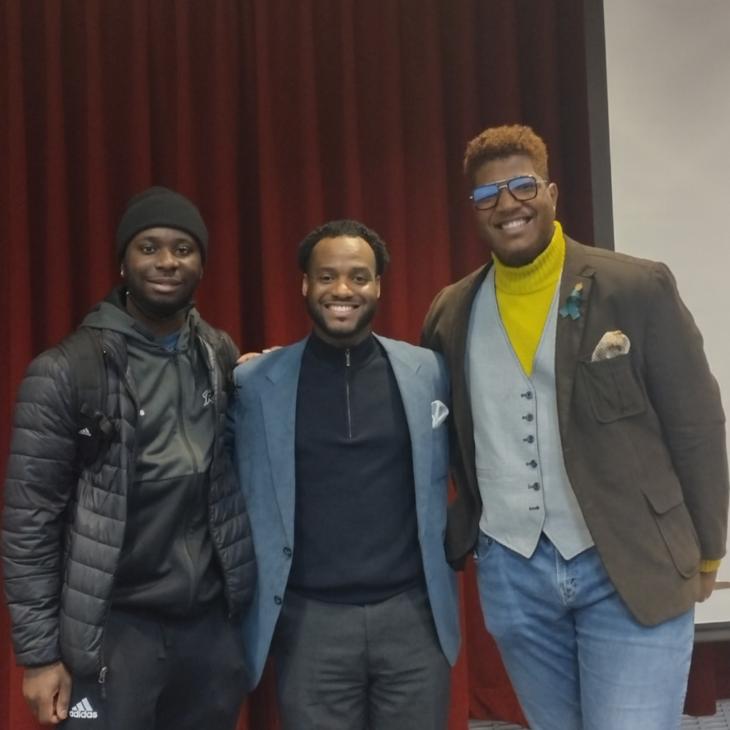
“True community is based on upon equality, mutuality, and reciprocity. It affirms the richness of individual diversity as well as the common human ties that bind us together.” – Pauli Murray, American Civil Rights Activist
The mission to build community at university and college campuses across the nation has not been met without resistance, yet because of the power of unity and the binding effects of love that draw individuals to a mutual desire to be respected and accepted, many institutions have experienced the opportunity to affirm a true sense of community. Societal transitions and racial injustices surrounding healthcare to COVID patients, vaccination administration, mass shootings in schools, police brutality, killings of Black and brown people, and much more have all presented unprecedented experiences in which faith has been reached for by every hand to help reconcile wounds created from social injustices and racial inequalities.
On a Tuesday morning in March, in the Rue Auditorium at Rider University in Lawrence Township, New Jersey, students, faculty, staff, administration, and spiritual leaders from the community gathered for “Fighting the Good Fight of Faith: An Interfaith Dialogue Addressing Race, Equity, and Inclusion.” As the graduate assistant for the Center for Diversity and Inclusion at the university, I designed the program in an effort to build a more inclusive community by discussing ways to provide racial equity across the campus using various faith practices such as respect, love, unity and a sense of belonging for all.
An inclusive effort to strengthen the community of faiths practiced at Rider University, the initiative was designed to not only bring awareness of the different faiths across campus, but to also initiate a continued dialogue that explores the commonalities of those various faiths to address racial inequities. The program provided an opportunity for anyone of the Rider community to embrace a sense of belonging as they practice their faith on campus and also a means of providing equity regarding the intersectionality of race and spirituality. As stated by Interfaith America’s report on Engaging Religious and Worldview Diversity: A Snapshot of Promising Practices, “College campuses are places where educators and students engage the complex ideas that will shape our country’s future, play a critical role in addressing divides between different religious and worldview identities. On campus, students can explore diversity and difference both intellectually and through personal experience.”
Share
Related Articles
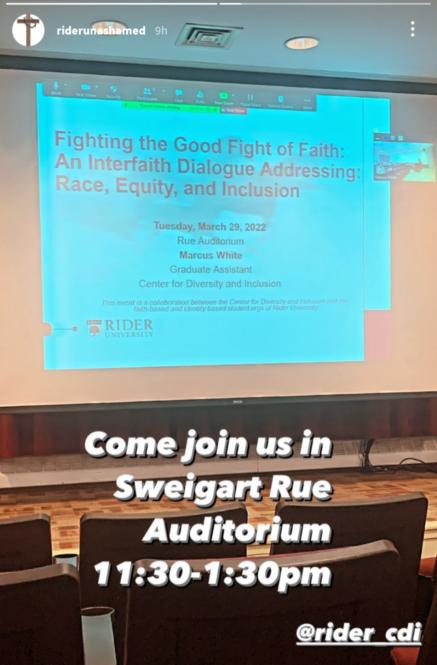
Rider University’s Unashamed Voices Instagram Invitation. Photo courtesy
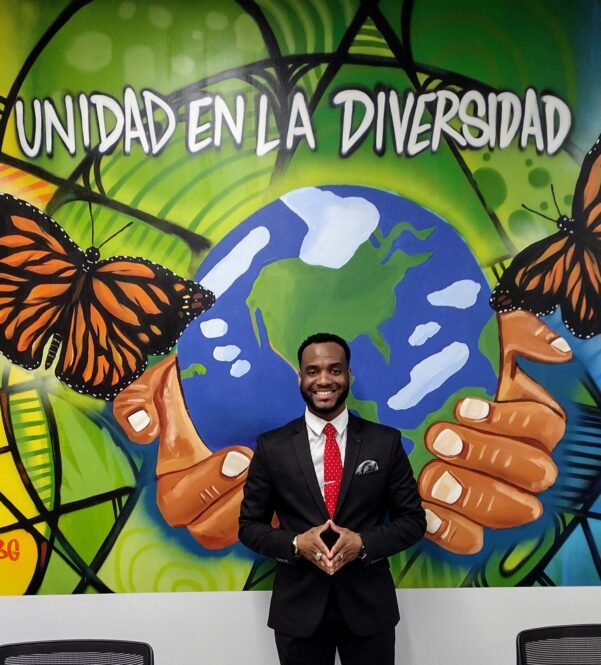
Rev. Marcus White. Mural on Rider University’s campus reads “United in Diversity”. Courtesy photo
In alignment with these sentiments, the program “Fighting the Good Fight of Faith,” highlighted ways to fight against inequitable practices of racism, discrimination, and segregated practices of the different faiths represented on Rider University’s campus. By offering students, faculty, staff, and spiritual leaders from the local community the opportunity to share, compare, and explore commonalities of their different faiths and how race interplays with the various practices on campus, the discussion was well attended by a diverse audience. The difference faiths of Christianity (Protestant and Catholicism), Islam, and Judaism were represented with the presence and participation of faith-based student club leaders from Intervarsity Christian Fellowship, Catholic Campus Ministries, Hillel (Jewish student organization), and the Muslim Student Association. Other identity-based student clubs that were present and provided commentary on how race impacts spirituality were: the Black Student Union, the Indian Student Association, members of the Latin Student Organization, and others.
Also mentioned in the Interfaith America’s report on Engaging Religious and Worldview Diversity: A Snapshot of Promising Practices, “Campuses have the potential to model the highest ideals of civil society, training students to become civic leaders and engage religious and worldview diversity toward positive ends.” So, in addition to student participation, commentary and experiences were also offered by advisors, faculty, directors, and spiritual leaders within the community at Rider University’s Fighting the Good Fight of Faith program. Rev. Dr. Nancy Schluter, who once served as a spiritual leader for the Rider University campus shared the insight on learning the common values of belief in moral and ethical virtues such as love and respect across different religions. Rev. Schluter also shared insight on the commonality between Christianity and Judaism. Director of the EOP (Educational Opportunity Program) at Rider University, Dr. Reggie Walker also shared his experiences growing up as a Black child with one parent who instilled in him morals from the Christian faith and another parent who installed in him morals from the Islamic faith. Advisors from Hillel and the Muslim Students Association also shared their knowledge on the fluidity of race as a social construct and the evolution of religious practices throughout time. These welcomed insights further support the Campus Interfaith Inventory 2022 Report for the Mid East, which is a free online inventory that helps campuses take stock of the practices, policies, and programs fostering interfaith cooperation across the entire campus community, and provided that 72% of the participating institutions indicated that their campus partners with the community on interfaith effort by hosting community organization representatives for on-campus interfaith programming (e.g. workshops, lectures, etc.).
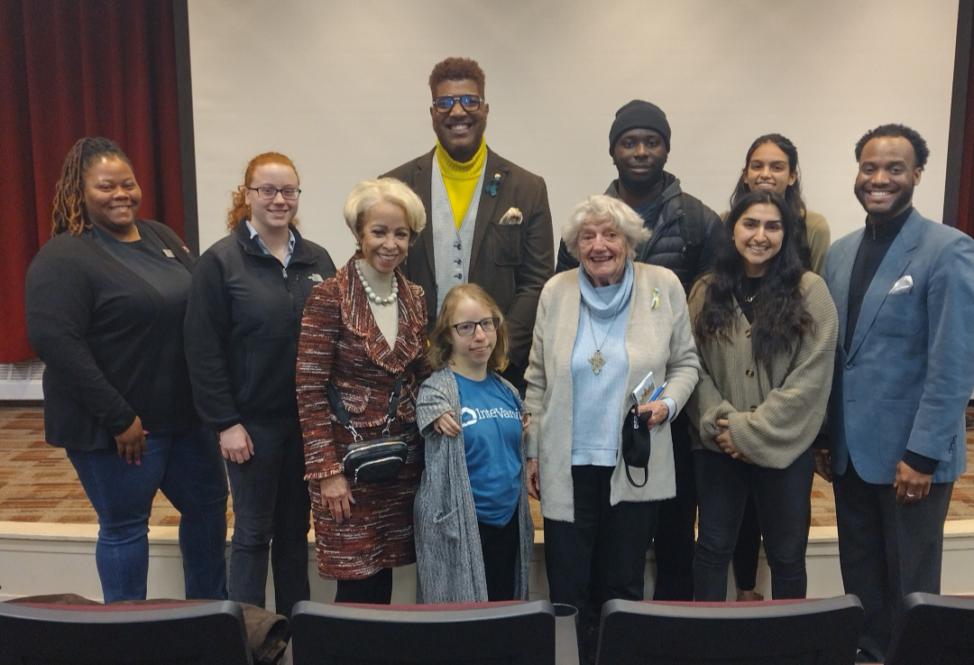
Supporters of the event from the Center for Diversity and Inclusion Executive Director, Dr. Pamela Pruitt, Rev. Dr. Nancy Schluter, Student Leaders from Intervarsity and Muslim Student Association. Courtesy photo
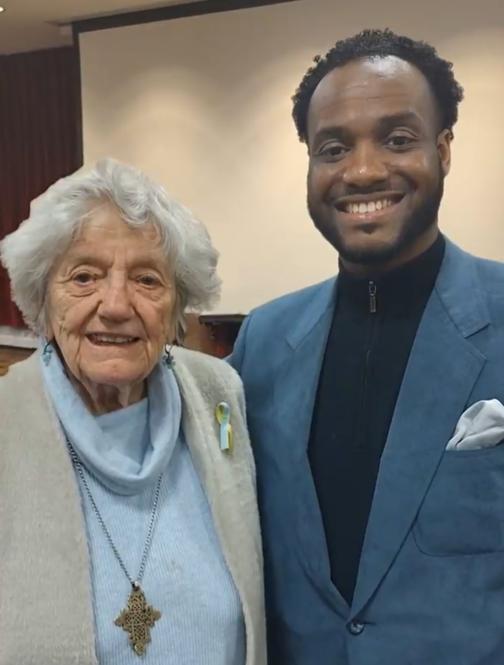
Rev. Dr. Nancy Sluchter (left) & Rev. Marcus White (right)
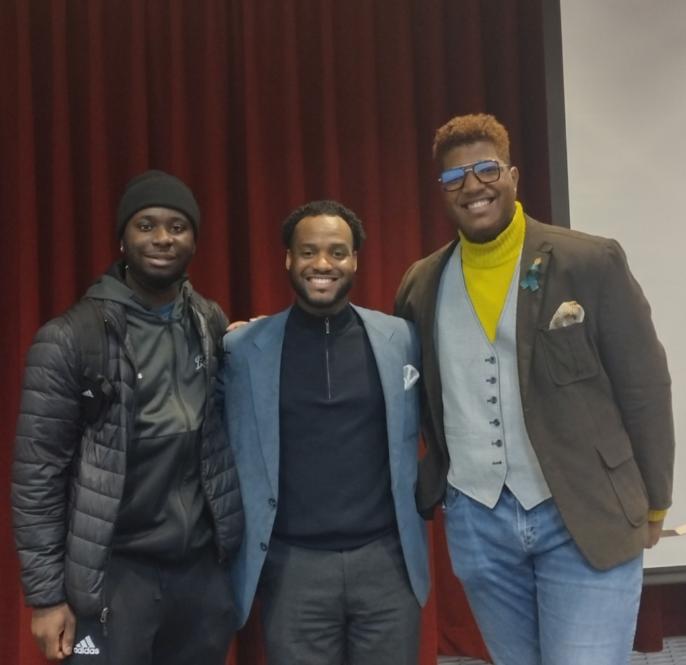
Student supporters at the event with Rev. Marcus White (center). Courtesy photo
“Strength is derived from unity. The range of our collective vision is far greater when individual insights become one.” - Andrew Carnegie
The presence of the Chief Diversity Officer and Vice President of Diversity, Equity, and Inclusion at Rider University, Barbara Lawrence, conveyed the university’s intentional efforts to advance spiritually and social justice initiatives that provide equity with experiences across the campus. Her contribution to the discussion highlighted the hope and need for continued dialogue to help build a more inclusive community where values of love, respect, and appreciation for each other can be a harmonious experience across the campus. Executive Director of the Center for Diversity and Inclusion, Dr. Pamela Pruitt also shared her presence, experiences, and observations of religion and race within her own life as well as across the campus community.
As a graduate student in the Rider University organizational leadership master’s program with a concentration in higher education, I moderated the discussion and invited attendees in person and via Zoom to share their insight into their practices and experiences. I was heartened by those who found the event inspiration to the initiative and efforts of building a more inclusive environment at Rider University through faith. In closing, I challenged all to not only embrace one’s own faith, but to respect and accept the right for others to share the same equitable opportunity across the campus. I highlighted the newly provided spaces on campus of the interfaith prayer room, interfaith meeting lounge, and campus ministry office in Gill Memorial Chapel in the center of the campus. I also provided additional virtual resources by way of Interfaith America’s website and invited all to continue the conversation by sending additional thoughts and sentiments to the email of the Center for Diversity and Inclusion.
Many who attended the program shared how appreciative they were to learn of the different religious practices and spiritual resources on campus. They also shared how enlightened they were to learn of the common values shared across the different faiths. Finally, they expressed the desire to have more programming and events like this to become more educated about building a stronger, more equitable and inclusive community. In response, highlighted expressions and sentiments from the program will be placed on display outside of Rider University ‘s Center for Diversity and Inclusion to continue the dialogue and efforts of building a more equitable and inclusive community of faith at Rider University. The Center for Diversity and Inclusion hopes to continue providing transformational programming that will positively impact the campus community in ways that promote true value for diversity, equity, inclusion, and belonging.
“Our strength as a nation comes in our unity. We are the United States of America, not the divided states. And those who want to divide us are trying to divide us, and we shouldn’t let them do it.” - Ben Carson
A religious leader’s role within the greater society is to be a voice of reason, to present soundness of thought, and help bring to reality the consciousness of morality and ethics. An effective religious leader helps others within the community appropriately express their views, while collectively fighting against social injustices in a spirit of unity. They provide a non-bias approach to expressing one’s perspective without offense for others to do the same. By doing so, we learn how to not only build a more harmonious society, but a more inclusive worldview. If we are to gain a better understanding on how to navigate the vicissitudes of life, we must continue to have dialogue that allows us to exchange our experiences and learn from each other. The time is now more than ever to exercise and fight for one’s faith. Others will be inspired to speak up for what is right so we all can experience love, peace and justice! Just moments before his arrest for what was considered an immoral taboo of society, claiming his identify as King of the Jews and the Son of God, Jesus prayed to His Father:
“Neither pray I for these alone, but for them also which shall believe on me through their word; That they all may be one; as thou, Father, art in me, and I in thee, that they also may be one in us: that the world may believe that thou hast sent me. And the glory which thou gavest me I have given them; that they may be one, even as we are one.”
– St. John 17:20-22
For more information about The Center for Diversity and Inclusion at Rider University and the social justice work experienced there, please visit: rider.edu/cdi



